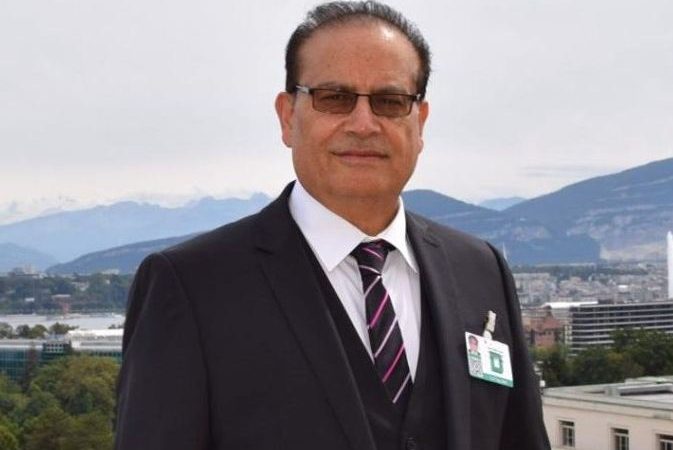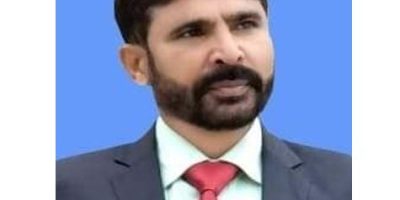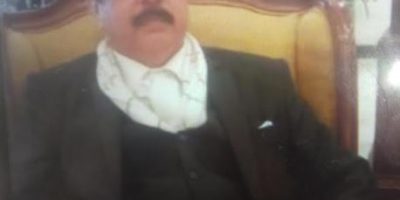Vawda’s Crystal Ball: From Misfires to Miracles”

Qamar Bashir
Before aligning with the establishment, Mr. Vawda made numerous predictions, but the majority of them never materialized, damaging the reputation of PTI’s government and eroding its political capital. I vividly recall one of his most outlandish and illogical predictions, made shortly after PTI assumed power in 2018. He confidently predicted that within a month or two, 20 million unemployed Pakistanis would secure high-profile jobs and that the country would become wealthier than ever before. However, this baseless prediction never came to fruition during PTI’s tenure, and the promise remained unfulfilled until the party was ousted from power.
Vawda consistently promised that the PTI government would reduce Pakistan’s debt through improved governance, minimizing corruption, and boosting exports. He asserted that foreign investments, particularly from Saudi Arabia, China, and the UAE, would play a significant role in stabilizing the economy. but his prediction proved totally false.
He highlighted that the PTI government would prioritize the development of infrastructure through the China-Pakistan Economic Corridor (CPEC), which would lead to increased trade, industrialization, and economic activity across Pakistan. In fact as the normal perception goes, CPEC was factually slowed down during PTI tenure in power.
Vawda promised that the PTI government would implement comprehensive tax reforms, focusing on expanding the tax net and reducing tax evasion. This would result in increased government revenue and a stronger fiscal position but there was no significant improvement in the revenue collections.
While predicting the future of Nawaz Sharif, Vawda claimed that Sharif’s return to Pakistan would bring significant legal challenges and that his political career would be in jeopardy. Contrary to this prediction, upon Nawaz Sharif’s return, he was received with immense fanfare. He was welcomed as a statesman and was greeted with grand receptions, including being escorted from London to a large public gathering at Minar-e-Pakistan in Lahore, where he was treated like a political icon rather than someone facing a bleak future.
Vawda repeatedly predicted the decline of both PML-N and PPP. He claimed that PML-N would eventually be restricted to Punjab, much like the MQM is limited to Karachi. Similarly, he forecasted that PPP would lose its national influence and be confined to Sindh. Exactly opposite happened. Against all odds both the parties have shared the power resources of the country and successfully ousted all other parties and established their governments in all three provinces except KP.
As soon as he changed allegiance and left PTI to become the civilian mouthpiece of the establishment, Vawda’s predictions suddenly gained remarkable accuracy. It was as though he experienced a “spiritual awakening” after aligning himself with new powers. His loyalty to his spiritual and political benefactors was handsomely rewarded. Despite not being part of any major political party, lacking a popular mandate, and even being somewhat unpopular among the public, Vawda was granted a Senate seat. His newfound connections catapulted him to media prominence, allowing him to appear on television channels of his choosing, with his preferred anchors, making predictions that consistently proved accurate. This transformation was seen as a direct result of his loyalty to his new political allies and benefactors.
Vawda had predicted that future governments in Pakistan would be coalition-based due to the lack of a clear majority by any single party. This prediction came true, as recent governments, including are operating as coalitions.
Vawda predicted that PTI might face serious hurdles in contesting future elections, hinting at a possibility of disqualification of Imran Khan. He predicted almost six months ago that PTI will be deprived of the “Bat” as its electoral symbol and predicted that PTI as a political party will not be allowed to contest elections. His significant predictions which sembled impossible when he made ultimately proved absolutely accurate.
His prediction that PTI would face increased challenges after the May 9 riots, especially due to the party’s conflict with the military and the establishment and will suffer from political isolation and legal repercussions, including mass arrests and prosecutions of party members proved so true.
Faisal Vawda predicted that Imran Khan would face continuous incarceration despite being granted bail in multiple cases, as the establishment was not willing to forgive him anytime soon. He dismissed rumors of a reconciliation between PTI and the establishment, emphasizing that the rift, especially after the May 9 events, had only deepened. Vawda believed that Khan’s legal troubles would persist due to the establishment’s determination to keep him under pressure, preventing any swift return to political normalcy for the PTI leader.
Among all of Vawda’s controversial predictions, the most critical and dangerous one was regarding the Supreme Court’s majority decision to restore PTI as a political party in the National Assembly. He predicted that, despite the court’s ruling, which also allowed independents who were elected with PTI’s support to formally join the party, the decision would face significant implementation challenges. Vawda warned that external pressures, particularly from influential institutions and political actors, would create obstacles that could delay or prevent the full execution of the Supreme Court’s decision, effectively undermining PTI’s position in the National and provincial assemblies.
The government’s response to the delay in implementing the Supreme Court’s decision regarding PTI’s reserved seats has been multifaceted. Initially, it raised concerns over the ruling, focusing on dissenting opinions from two judges, which questioned the legitimacy of the decision and highlighted potential constitutional conflicts, such as the justification of floor-crossing.
A review petitions were filed by parties like PML-N and PPP, raising concerns about the procedural fairness of the decision. Meanwhile, the Election Commission of Pakistan (ECP) also sought clarification from the court, further delaying the decision’s implementation.
The objection inter alia included PTI’s organizational structure, particularly whether the party had conducted intra-party elections in compliance with legal requirements, which affected its ability to issue proper affiliation certificates to candidates. Second, the ECP sought clarification on whether independent candidates who had not initially contested under PTI’s banner could be recognized as PTI members for reserved seats, arguing that such affiliations should have been formalized at the time of elections. Lastly, the ECP pointed out procedural challenges in implementing the Supreme Court’s ruling, suggesting that the decision lacked clear guidance on how to certify party affiliations and comply with electoral law, further complicating the implementation process. The parliament, which is a party to the conflict, passed an amendment to the Election Act 2023, aimed at limiting the Supreme Court’s power to implement its decisions.
When the Supreme Court reviews the Election Act 2023 amendment and related petitions, it will likely focus on maintaining judicial independence, potentially striking down the amendment if it is deemed to undermine the court’s authority to enforce its decisions. The court may also revisit the balance of power between the judiciary and legislature, addressing concerns of legislative overreach while interpreting the constitutional framework. Additionally, the court could provide clarifications on procedural aspects, such as PTI’s organizational structure and the legitimacy of independent candidates joining the party. Given the political and institutional pressures involved, the court may issue a nuanced ruling that balances legal and political considerations, potentially navigating a middle ground to resolve the conflict.
Qamar Bashir
Former Press Secretary to the President
Former Press Minister to the Embassy of Pakistan to France
Former MD, SRBC, CEO, ATV
Related News

What the Russia Reveal about 2026
Dr, Muhammad Akram Zaheer As Russia enters 2026, attention is increasingly shifting away from theRead More

Afghanistan’s Unhealed Wound
Hashim Raza Adv/Peshawar, LLM (UK) Raza For more than four decades, Afghanistan has remained a bleedingRead More


Comments are Closed